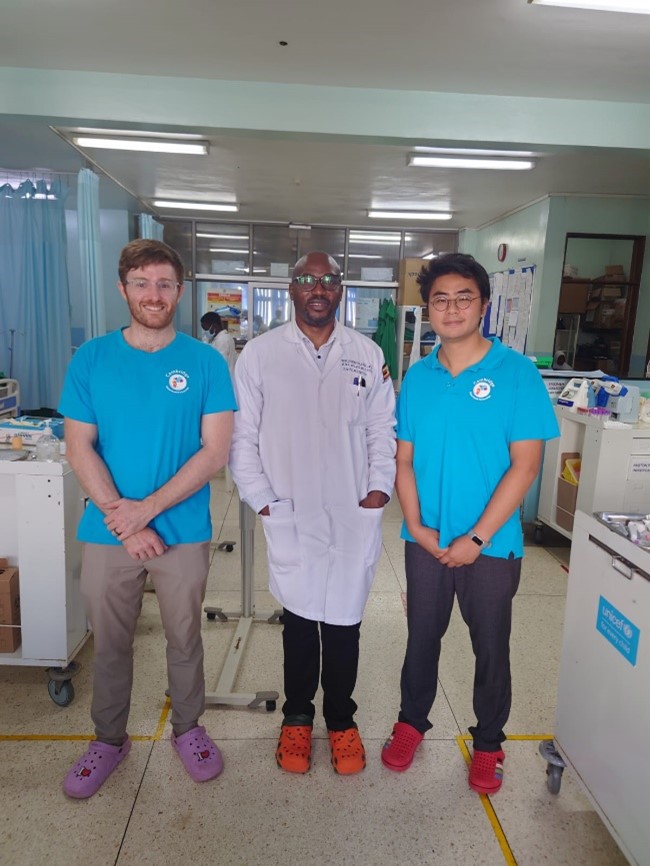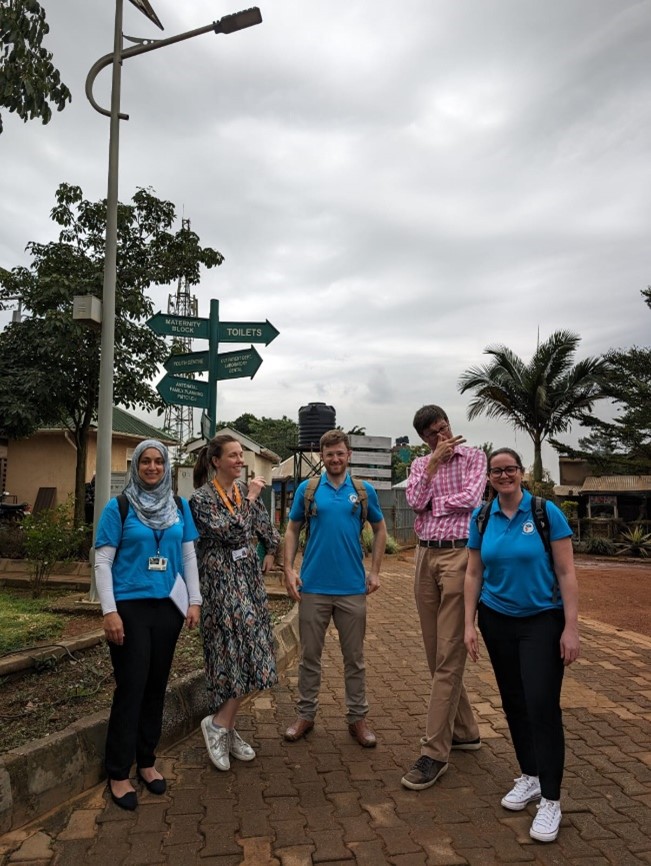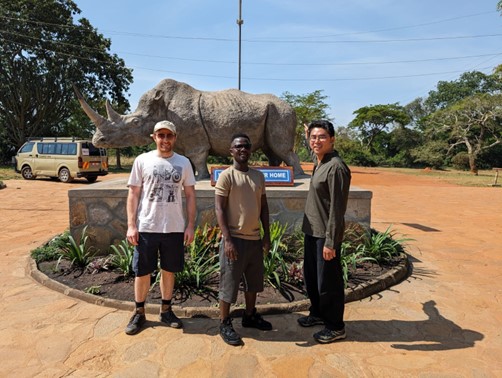Stuart Drazich-Taylor is a microbiology doctor at Norfolk and Norwich University Hospitals NHS Foundation Trust (NNUH). He recently returned from three months working with the Kampala Cambridge Antimicrobial Stewardship health partnership in Uganda. Here he reflects on the experience, learnings and what he plans to do next.
“I was inspired to get involved in global health to develop management and leadership experience in an unfamiliar setting. I also wanted to see if I could use my skills and knowledge to improve the health of people visiting Kawempe Hospital in Uganda.
Along with pharmacist Bobby Shum, I joined the Maternal and Neonatal Health: Antimicrobial Stewardship and Infection Prevention Control project, which is part of the CGHP-supported Kampala-Cambridge Health Partnership.
The aim of the project is to strengthen clinical, laboratory and diagnostic capability to increase understanding of resistance, and improve prescribing practices to enable responsive management of maternal and neonatal patients in Kampala.
Kawempe Hospital, which is the primary focus of the project, is a large maternal hospital providing care to many patients. It is also a referral centre for local health centres for the referral of complex patients. The project is particularly important as AMS and IPC are areas which would benefit from increased attention.


My contribution
One of my main tasks was to work with the local microbiology laboratory to understand how samples were processed and reported and to advise on what aspects of laboratory practise could be improved. My other role was in assisting in developing training for the spoke sites and providing teaching on antimicrobial stewardship.
I contributed in-depth knowledge of clinical microbiology, of how to perform quality improvement and how to deliver high quality teaching. I think I made the biggest impact when I had collated the previous 18 months’ worth of organism sensitivities. I delivered a teaching session on how extensive the resistance was and how we need to drive down unnecessary prescribing which was commonplace in the hospital.
Slowly making changes
While it was frustrating at times trying to engage the local staff members and navigate the hierarchical hospital structure, it was rewarding to see slow gains being made and the development of our relationships with the local partners and staff.
Bobby and I delivered training to spoke sites and empowered them to set up a Medicines and Therapeutics Committee (MTC) to have greater influence on their management and purchasing of supplies. We also highlighted the importance of stewardship and applying IPC practices locally.
By highlighting the high levels of resistance within Kawempe hospital we have brought attention to aspects of poor prescribing. If these are improved, it will reduce the nursing burden on giving antibiotics and reduce side effects in patients.
Bobby did an excellent job in designing a drug chart for NICU which if implemented should greatly improve prescribing clarity, reduce missed doses and improve the health of babies on the neonatal unit.
We are attempting to implement a protocol for no antibiotics post elective C-section, in keeping with international best practice and which the hospital management are receptive to. If this is successful it will reduce hospital costs, improve stewardship and will develop audit and quality improvement methodology locally.
On our visit to Murchison falls, the safari driver recounted how he was one of 64 siblings! It nicely highlighted the differences in cultures and the importance of maternal medicine.

Personal and professional development
On a personal level I enjoyed facing the challenge of trying to use more time effectively within a different healthcare system and as part of a project. I enjoyed working with my colleague Bobby and we quickly became an effective team. It was difficult to leave my wife and daughter behind and has given me an even greater appreciation of my family support back home.
Professionally, I have relished the opportunity to become involved with a project and to continue to help drive it forward even after my initial visit has concluded. I have gained further leadership and management experience and am looking forward to applying these to my local environment. Furthermore it has also made me consider the possibility of completing a PhD within global health which is something I had never seriously considered before.
I have come back from the visit with a renewed appreciation of our healthcare systema and a desire and willingness to improve or change aspects that are not optimal. I am helping to ensure microbiology trainees are better able to attend AMS ward rounds to continue to develop our skills and presence in the hospital. Clinical microbiology is a developing specialty in Uganda, as opposed to the UK, but I am mindful that we need increased presence within our hospital.
Global health work has definitely helped strengthen my resolve with regards to quality improvement and developing our department.”
Find out more about the Kampala Cambridge Antimicrobial Stewardship health partnership, how you can become a member, or contact us at info@cghp.org.uk
Return to blogs
